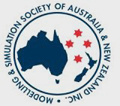Turning vision into action
8–10 April 2024
Crowne Plaza, Queenstown, New Zealand
The first Australia and New Zealand Symposium on Water Quality Modelling was held during 8-10 April 2024 at Queenstown, New Zealand. About 40 experts, researchers, and professionals from Australia and New Zealand met and discussed ways to advance the future of water quality modelling. This was a planning-oriented symposium to address how to build a modelling community, make our modelling more relevant to decision-makers and society, and advance the practice of water quality modelling. This symposium was held under the auspices of the Modelling and Simulation Society of Australia and New Zealand Inc. (MSSANZ).
The water quality Special Interest Group (SIG) of MSSANZ has been holding forums over the last few MODSIM conferences, increasingly attracting numerous interested members. The SIG covers all aspects of water quality modelling – from farms to catchments to water bodies. Through these forums and dedicated workshops, an initiative has been developed to organize a symposium with the aim of building the Australasian water quality modelling community and developing action plans associated with several priority areas.
Water quality modelling plays a pivotal role in protecting our precious water resources and ensuring the health and sustainability of aquatic ecosystems while understanding the adaptations needed to be made on land where the contaminants are generated. This symposium provided attendees with opportunity to shape the future direction of modelling in this important area, and built their involvement with the water quality modelling community.
Attendees
- Researchers and scientists in the field of environmental science and water quality assessment
- Water resource managers, policy makers and decision-makers
- Engineers and professionals involved in water quality modelling and monitoring
- Students and academics interested in advancing their knowledge in this critical area.
Key activities
- Keynote speakers: Four renowned experts in the field will deliver keynote addresses, providing valuable insights into the challenges and opportunities in water quality modelling.
- Presentation Sessions: Brief showcase of your research through poster presentations or 3-min presentation to help participants get to know each other.
- Interactive Workshops: Participate in hands-on workshops to develop goals and a work plan for each topic. Each symposium attendee will typically be on the team for two workshop topics. See below for the workshop topics. The workshop findings will be presented at an externally-broadcast plenary session at the end of the symposium.
- Networking Opportunities: Connect with fellow professionals, researchers, and decision-makers in the field. Share your experiences, collaborate on projects, and establish valuable contacts.
- Beautiful venue: The symposium will be held in April in Queenstown of New Zealand. You can expect stunning autumn colours around Lake Wakatipu, a vibrant atmosphere with cultural events happening around town, and unlimited of enjoyable outdoor activities.
- A symposium dinner: Earnslaw boat trip and gourmet barbeque at Walter Peak Station
Keynote speakers
- Ken Taylor, Chair of the Interim Ministerial Advisory Group on Limits and Targets, New Zealand
- Cassandra Sedran-Price (Muruwari/Gangugari), CSIRO, Australia
- Tanira Kingi (Ngāti Whakaue, Te Arawa, Ngāti Awa), Climate Change Commissioner and Emeritus Scientist, Scion, New Zealand
- Barbara Robson, Australian Institute of Marine Sciences, Australia
Workshop topics and outputs
We have identified several workshop topics, building on previous activities of the SIG, and with survey input from people on the SIG mailing list. The topics will be (numbers refer to the programme):
1.1 Developing and improving modelling platforms
1.2 Linking modelling with indigenous communities and knowledge systems
1.3 Making the case for the utility and benefits of water quality modelling
2.1 Developing good-practice modelling guidelines
2.2 Strategy for uptake and use of new modelling technologies
2.3 Developing and improving data-sharing platforms
Conference organising committee
Sandy Elliott, Val Snow, Richard Muirhead, Linh Hoang, Kohji Muraoka
Associated societies and Sponsors



